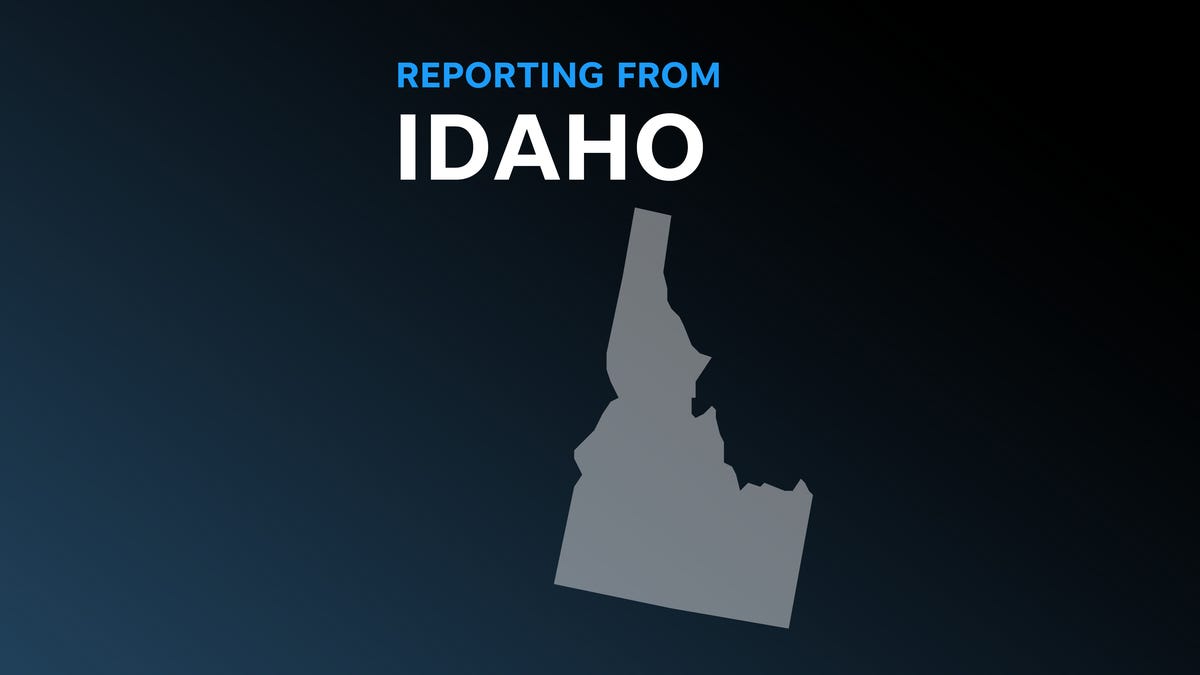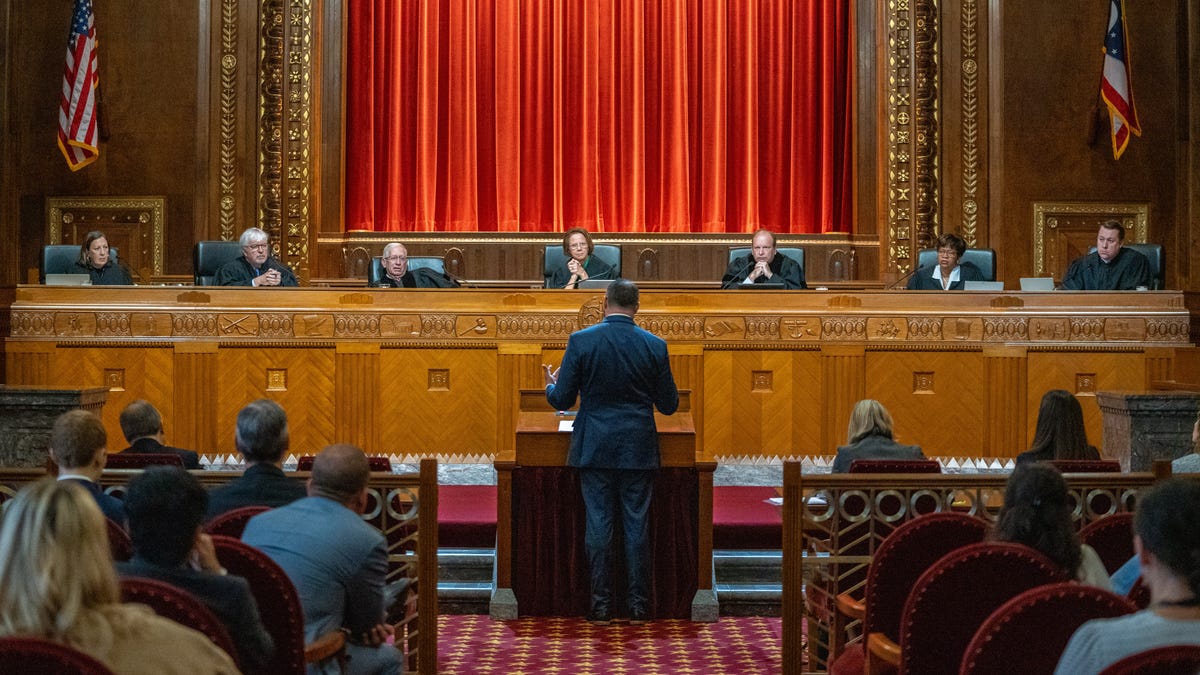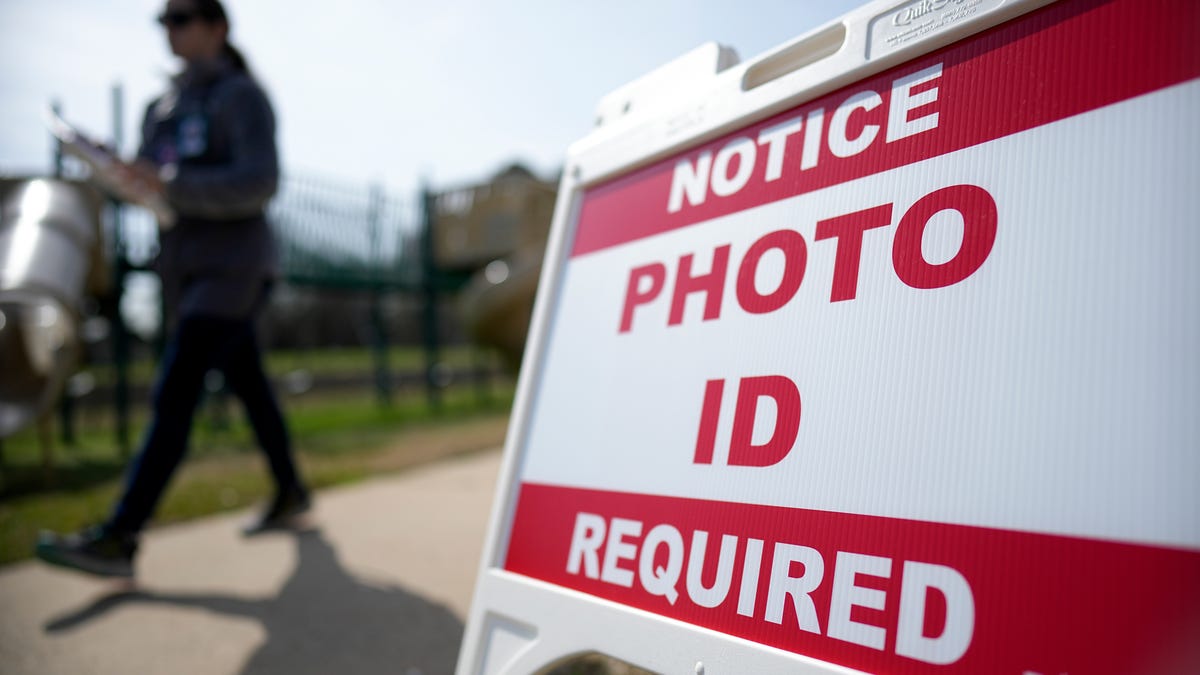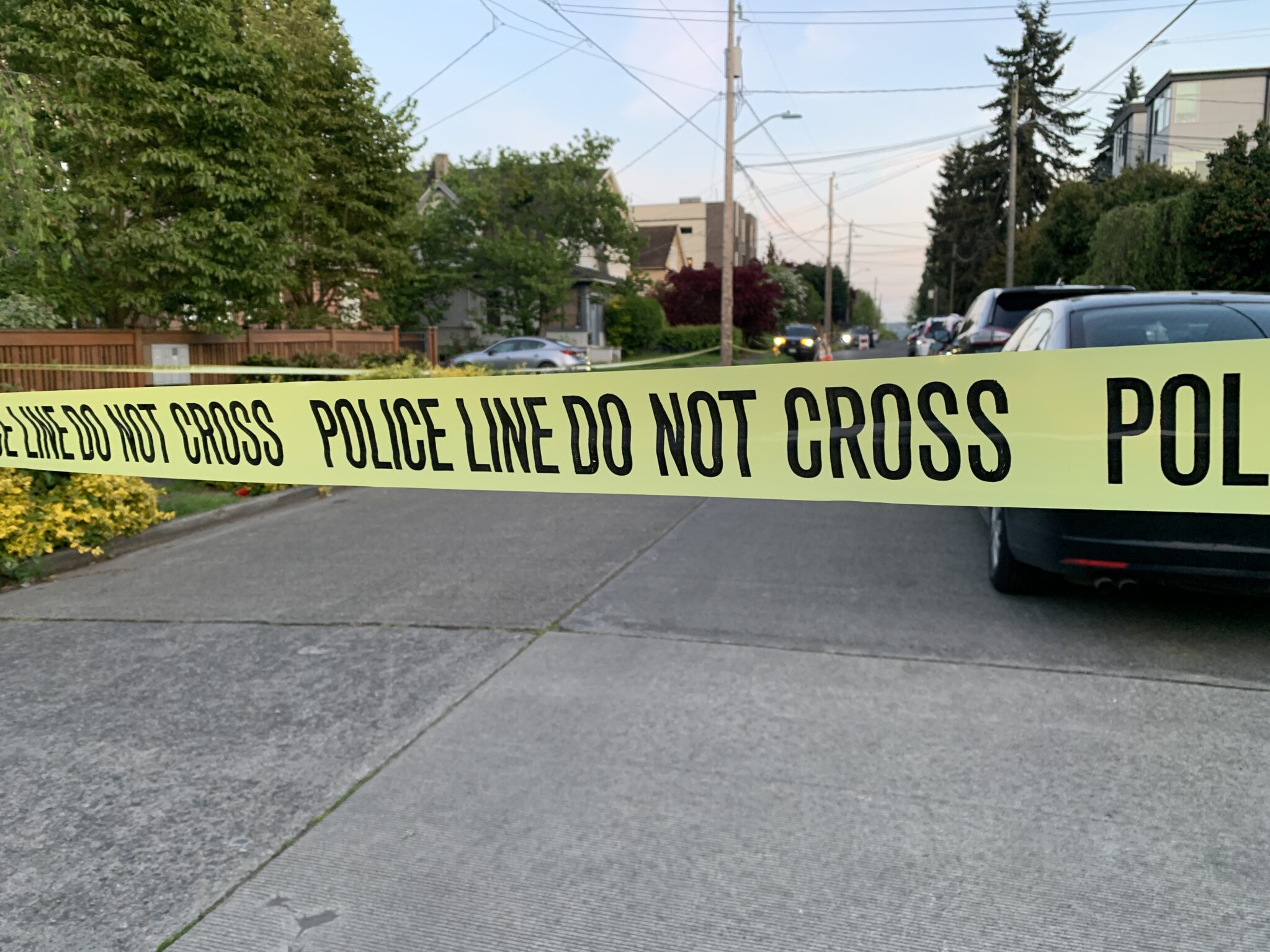World
Credit Suisse retail investors plan lawsuit challenging UBS buyout- FT
/cloudfront-us-east-2.images.arcpublishing.com/reuters/F52OYOURFJKILC64RNPAYALZHU.jpg)
The logo of Credit Suisse is seen outside its office building in Hong Kong, China, August 8, 2023. REUTERS/Tyrone Siu
Aug 13 (Reuters) – Retail investors who lost money when Credit Suisse was taken over by UBS in March plan to file a lawsuit challenging the buyout, the Financial Times reported on Sunday.
The Swiss Investor Protection Association plans to file the claim in Zurich’s commercial court on Monday on behalf of about 500 Credit Suisse equity investors, the newspaper said.
Reporting by Gokul Pisharody in Bengaluru; Editing by William Mallard
Our Standards: The Thomson Reuters Trust Principles.

World
‘My vote snatched’: India election clouded by mysterious candidate pullouts

New Delhi, India – Prince Patel cancelled his vacation plans after the dates were announced for India’s ongoing weeks-long elections. The 61-year-old retired engineer said he had waited patiently for five years to cast his vote in Surat, India’s diamond hub in the western Indian state of Gujarat, “to give my referendum against the policy failures of [Prime Minister Narendra Modi’s] government”.
But when the May 7 date arrived for the city to vote along with 92 other constituencies in the third phase of India’s election, there were no polling booths set up in Surat.
Two weeks earlier, the Election Commission of India (ECI) had already called the seat in favour of Modi’s Bharatiya Janata Party (BJP) after cancelling the nominations of the opposition Congress party’s candidate and five others. The eight remaining candidates all withdrew.
Patel said he was devastated. He had voted for the BJP in 2014, lifted by Modi’s promises of “acche din” (good days). But by 2019, disenchantment had set in. Unemployment and price rise are some of his biggest worries, he said – sentiments that mirror recent opinion polls.
“I would rather vote for a pigeon than choose the BJP,” he said. “My children have graduated but there are no jobs.”
Yet, Surat is only the most extreme example of a peculiar phenomenon that is playing out in multiple constituencies across India: opposition candidates dropping out, joining the ruling BJP or alleging threats to their lives. Even as the BJP has denied any foul play, opposition candidates claim these instances are evidence of an uneven political playing field.
“The government is their [BJP’s] own, and the election commission cancelled several nominations on one point or another,” said Vijay Lohar, who was the candidate of a regional party, the Bahujan Republican Socialist Party, before his nomination was rejected by election authorities. “The BJP is the referee of this game. Where should I complain?”
‘Show of dominance’
More than 400km (250 miles) miles away from Surat, the city of Indore in the central state of Madhya Pradesh is also preparing for what is shaping up, effectively, as a non-contest.
The city’s vote is scheduled for May 13. But Akshay Kanti Bam, the candidate for the Congress, withdrew his nomination on April 29, the last date for withdrawal of candidatures – after the deadline for filing nominations had passed. In essence, that has meant that the Congress cannot contest against sitting BJP member of parliament Shankar Lalwani, who is also the party’s nominee this time around. Bam, meanwhile, has also quit the Congress and joined the BJP on election eve, claiming that the party that nominated him for the constituency did not support his campaign on the ground.
The Congress party has called on voters in Indore to pick the ‘None of the Above’, or NOTA, option on electoral voting machines – which allows them to show displeasure with all candidates who are contesting – even as it accuses the BJP of pressuring Bam to switch sides on election eve. Bam did not respond to repeated requests from Al Jazeera for an interview.
The BJP insists it has had no role in the decisions of opposition candidates who have withdrawn their nominations.
“People have withdrawn as per their discretion and these are absolutely baseless allegations,” said Zafar Islam, a national spokesperson for the BJP. “Thousands of candidates are fighting in this election across hundreds of seats peacefully – these allegations are only aimed at maligning the BJP’s image.”
But some analysts see a pattern in the constituencies affected by candidate withdrawals. Gujarat and Madhya Pradesh are both bastions of the BJP: The party won all 26 of Gujarat’s seats in the Lok Sabha – the lower house of India’s parliament – in 2014 and 2019. It won 27 out of Madhya Pradesh’s 29 seats in 2014 and improved that to 28 wins in 2019.
In the public eye, the pull-out of opposition candidates from key contests in these states is akin to “booth capturing”, said Neelanjan Sircar, a senior fellow at the New Delhi-based Centre for Policy Research (CPR), referring to the illegal practice of seizing control of a polling station during elections, which used to be common in parts of India until a few decades ago.
“At a level of the booth, you capture the booth you are strongest at, and that is done to demonstrate dominance,” said Sircar. The idea, he said, is to “signal to the opposition that we can win elections whenever we want”.
And however the ruling party wants, if Jitendra Chauhan, a candidate who withdrew his nomination from the Gandhinagar seat in Gujarat, is to be believed.
‘Threat to our lives’
Chauhan’s name was supposed to be among the options on the voting machine on May 7, when Gandhinagar voted.
But the 39-year-old painter, who was contesting as an independent candidate, pulled out of the election against India’s powerful Home Minister Amit Shah, who is widely seen as Modi’s deputy.
“There has been extreme pressure upon me, and I have been mentally tortured to the point where I gave up,” Chauhan told Al Jazeera. He claimed that “BJP people” approached his extended family to pressure him to quit. If they could reach his family, they could hurt them too, he feared.
“So I backed off and withdrew my nomination,” he said.
Father to three daughters, Chauhan released a video on April 21, sobbing and alluding to a threat that he received of consequences – including for his very life – if he did not back down. Many other candidates also pulled out from the contest against Shah.
“I have a responsibility to raise my daughters,” he said, adding that he moved his children to safety outside Gujarat, which is ruled by the BJP, before coming back to vote on May 7. “I’m not financially well-off and I cannot afford to resist the BJP because anything can happen to our lives.”
The BJP has not lost the Gandhinagar seat since 1984. In the 2019 elections, Shah won the seat by a margin of 550,000 votes, and there is little evidence that he would have faced any risk of a loss even if all candidates had contested as they had planned to. But his campaign has set its eyes on doubling Shah’s 2019 victory margin, and fewer contestants could help.
In the 2014 and 2019 elections, “there was a booming turnout for anticorruption promises and nationalism”, but the BJP has lost that wave, said Sircar of the CPR. “The BJP is certainly the most popular party in India, but you have to manufacture some ways of keeping these markers of dominance,” he said.
A Gujarat-based political analyst, who spoke on condition of anonymity because of fears over their safety, said these incidents pointed to holes in India’s claims to be the world’s largest democracy simply because of the scale of the election it holds. “The worst of democracies also have elections – you cannot do away with elections,” they said. “But the question is about the fairness of the electoral process, and that seems compromised in India.”
It is a sentiment that Chauhan echoed. He said he had thought of contesting because, as a common man who had grown up in poverty, he felt politics was the only vehicle for change.
“But it will always be like a hole in my heart that I was forced into withdrawing,” said Chauhan, his voice cracking, as he spoke on May 7 after voting. “When I voted today, I did not feel like an independent citizen. I felt like a subject of King Modi.”
‘Future in darkness’
In India, a walkover is rare for candidates. An uncontested win has only been recorded 23 times since the country gained independence in 1947.
But for a little more than a decade, Indian elections have also offered the NOTA option. That’s what the Congress is pushing voters in Indore to pick on May 13.
Anuj, a 60-year-old from Indore, who wished to be identified by his first name, was first drawn to the Congress when he drove the campaign jeep of the late Prime Minister Rajiv Gandhi as a young man more than three decades ago. Since then, he has been loyal to the party, he said, and has campaigned for the Congress this time too.
“We all will vote NOTA. My party candidate is not there, and the other option is the BJP,” he said. “It may not change anything, but it will give comfort to my heart that I resisted.”
Meanwhile, a group of lawyers working with civil society activists are also planning to take India’s election commission to court for calling the result of the Surat election without allowing people to vote on NOTA.
“Is NOTA not seen as an independent candidate on the machine?” one of the lawyers said in a conversation with Al Jazeera, requesting anonymity, citing fears of pressure aimed at pre-empting the petition.
Back in Surat, Patel, the retired engineer, was more blunt about his frustration.
“My right to vote has been snatched,” he said.
World
A Satellite View of Israel’s New Front in Gaza

New satellite imagery taken after Israeli forces pushed into Rafah shows widespread damage to the southern Gaza city — including large areas of flattened structures — and clusters of Israeli armored vehicles.
Source: Satellite imagery from Planet Labs
Imagery captured on Tuesday morning by Planet Labs, a commercial satellite company, shows damaged buildings reaching more than two miles into the territory near Rafah’s border crossing with Egypt. Israel seized that crossing this week.
Photos and videos released by the Israeli military in the same area show tanks in the vicinity of the crossing at a similar time on Tuesday morning.
While it is not possible to know exactly what caused the damage shown in the satellite imagery, much of what can be seen is consistent with the aftermath of clearing operations and other Israeli ground operations elsewhere in the Gaza Strip.
Source: Satellite imagery from Planet Labs
Israel says Rafah is Hamas’s last stronghold, and a critical gateway for arms shipments smuggled into Gaza from Egypt. It says it is determined to make sure the militants who were behind the Oct. 7 attacks on Israel no longer pose a threat.
But Rafah has also become a refuge for more than a million Palestinians who have fled Israeli bombardment in other parts of Gaza, and there is broad concern that a full-scale invasion might prove catastrophic.
Beyond that, Rafah is also home to one of the two main entry points for the vast majority of aid that has managed to enter Gaza during the war. Since the latest Israeli military operation began, no fuel or aid has made it through, according to Scott Anderson, the deputy director of UNRWA, the main U.N. aid agency in Gaza.
Source: Israeli military announcements
On Monday, the Israeli military ordered about 110,000 people to evacuate parts of Rafah. Thousands left the city, the Palestine Red Crescent Society said, which reported “escalating Israeli airstrikes” in areas east of Rafah.
Local health authorities warned of a “significant increase” in the death toll because of intense Israeli bombardment across Gaza, particularly in Rafah. The bodies of 58 people killed in Israeli strikes had arrived at Rafah’s Abu Yousef al-Najjar Hospital since Sunday, Dr. Marwan al-Hams, the hospital’s director, said Tuesday.
World
US reputation declines globally, immigration concerns grow in Europe: study
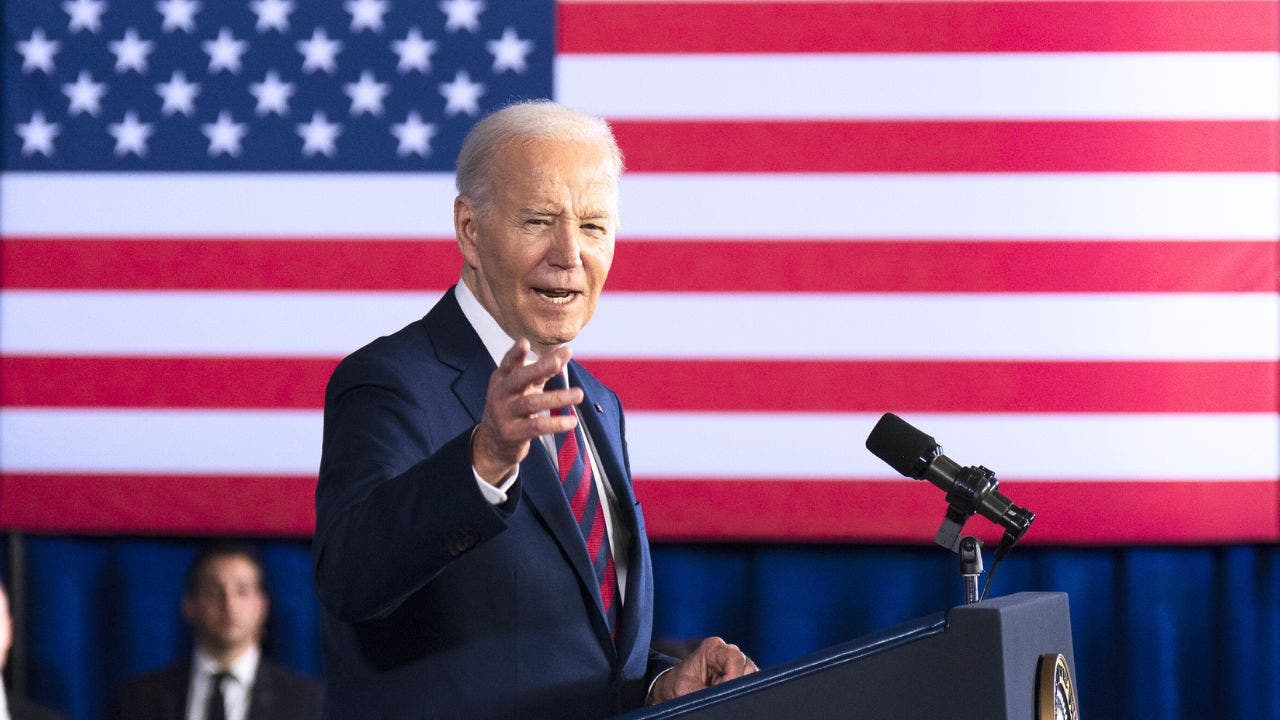
The reputation of the U.S. globally has taken a hit over the last year and the majority of citizens believe election integrity threatens the country’s democracy, while immigration is now one of the top concerns among Europeans, according to a global study published on Wednesday.
The drop in positive attitudes towards the U.S. is particularly stark in the Muslim-majority countries surveyed, including Indonesia, Malaysia, Turkey, Morocco, Egypt, and Algeria, as well as in European countries such as Switzerland, Ireland, Ukraine and Germany.
Still, the U.S. remains positively viewed globally, although Russia and China are now seen as positively as the U.S. in most Middle East and North African countries surveyed, according to the study.
BIDEN PLAN TO EXTEND OBAMACARE ELIGIBILITY TO ILLEGAL IMMIGRANTS GETS PUSHBACK IN CONGRESS: ‘MADNESS’
Biden speaks at the Pieper-Hillside Boys and Girls Club in Milwaukee, Wisconsin, on March 13, 2024. The reputation of the U.S. has suffered globally between the Spring of 2023 and the Spring of 2024. ( Sara Stathas/Bloomberg via Getty Images)
In Europe, countries have witnessed a sharp increase in the share of people who say that “reducing immigration” should be a top government priority as concerns about climate change fall, according to a global study published on Wednesday. About 5.1 million immigrants entered the EU from non-EU countries in 2022, an increase of around 117%, or 2.7 million, compared to 2021, European data shows.
Germany was in the lead with 44% when it came to people wanting their government to focus on reducing immigration, followed by Ireland and France.
The study, called the Democracy Perception Index (DPI) is one of the world’s largest annual studies on how people perceive the state of democracy in their respective countries and consisted of 63,000 interviews from people across 53 countries. It was conducted by the Denmark-based think tank Alliance of Democracies Foundation and the research group Latana. It did not provide a reason for the U.S. reputation decline.
The DPI found that faith in democracy has remained high across the globe over the past six years with 85% of those polled saying that it’s important to have democracy in their country.
However, governments don’t always live up to people’s expectations. While 58% of respondents were satisfied with the state of democracy in their country, the remainder were not.
In the U.S., 60% of respondents said that unfair elections and/or election fraud threatens the country’s democracy, while about 77% said that corruption is a threat to democracy.
LESS THAN 1 IN 4 AMERICANS HAVE FAVORABLE OPINION OF FEDERAL GOVERNMENT: POLL
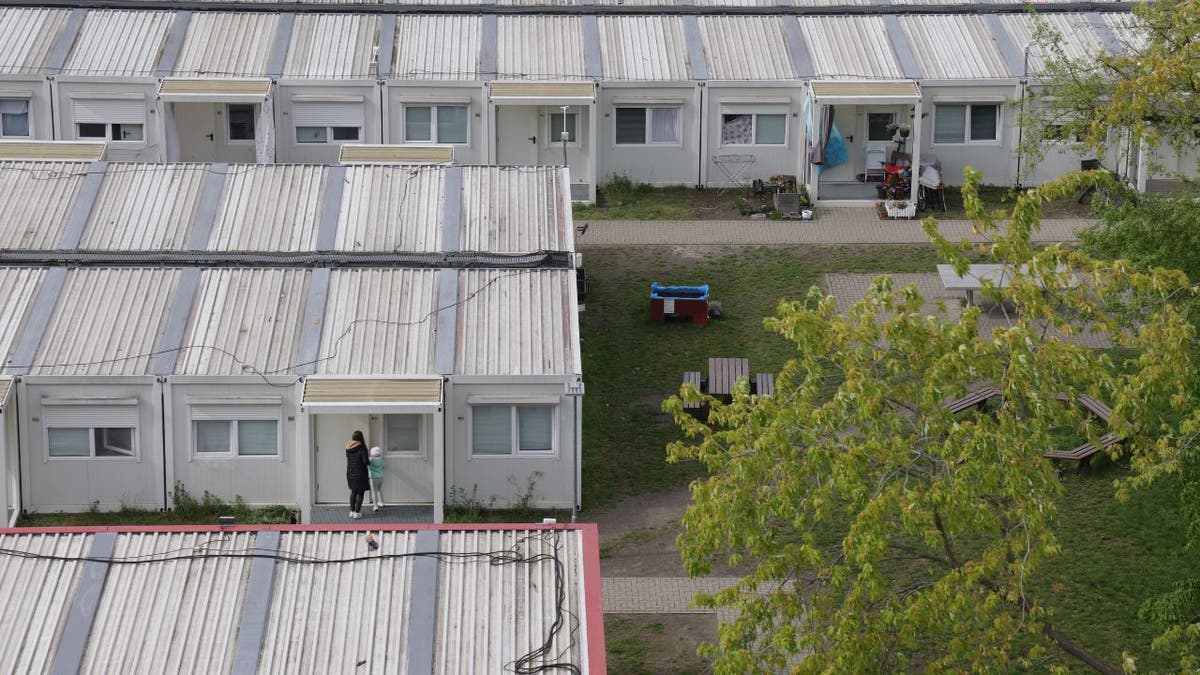
A container settlement that provides housing for refugees stands in Kreuzberg district on April 16, 2024 in Berlin, Germany. Immigration is now a major concern among Germans. ( Sean Gallup/Getty Images)
The study said dissatisfaction was not limited to non-democratic countries. It was also prevalent in the U.S., Europe and in other places with a long democratic tradition.
In Europe, about a third of Hungarians believe they live in a democracy.
About half of the people around the world, in both democratic and non-democratic countries, feel that their government is acting only in the interest of a small group of people. Over the past four years, this perception has remained highest in Latin America, lowest in Asia and has steadily increased in Europe since 2020 – particularly in Germany, the study shows.
Israel, Ukraine and Russia have all experienced a “rally around the flag” effect, with the public perception that the government is acting in the interest of the majority of the people increasing rapidly after the start of their respective conflicts. In Ukraine, however, this perception declined sharply after it peaked in 2022.
Anders Fogh Rasmussen, the chair of the Alliance of Democracies Foundation and former Danish Prime Minister, says that these figures are an eye-opener and the trend shows there is a risk of losing the Global South to the autocracies.

The DPI found that faith in democracy has remained high across the globe over the past six years with 85% of those polled saying that it’s important to have democracy in their country. (PAUL J. RICHARDS/AFP via Getty Images)
“Around the world people want to live under democracy but these figures are a wake-up call for all democratic governments,” Rasmussen said.
“Defending democracy means advancing freedom around the world, but it also means listening to voters’ concerns at home… We are witnessing an axis of autocracies forming from China to Russia to Iran. We must act now to make freedom more attractive than dictatorship and unite through an alliance of democracies to push back against the emboldened autocrats.
War and violent conflict is increasingly seen as the most important global challenge, followed by poverty and hunger, and climate change. The last year has seen a global rise in the share of people who say that migration and terrorism are among the world’s largest challenges, particularly among Europeans.
At the national level, most people want their governments to focus more on poverty reduction, corruption and economic growth.
However, there are strong regional differences in priorities: Europeans and Americans are much more likely to want their government to prioritize improving healthcare, fighting climate change and reducing immigration than countries in Asia and Latin America, where fighting corruption and promoting growth are seen as more important.
Globally, 33% of those surveyed believe climate change is one of the world’s three main challenges, but only 14% say fighting it should be among the top three priorities for their government.
Immigration is likely to play a major role in next month’s European elections where nationalist parties are expected to make significant gains.
The Associated Press contributed to this report.
-

 Politics1 week ago
Politics1 week agoHouse Republicans brace for spring legislative sprint with one less GOP vote
-

 Politics1 week ago
Politics1 week agoStefanik hits special counsel Jack Smith with ethics complaint, accuses him of election meddling
-

 Politics1 week ago
Politics1 week agoThe White House has a new curator. Donna Hayashi Smith is the first Asian American to hold the post
-

 Politics1 week ago
Politics1 week agoAnti-Trump DA's no-show at debate leaves challenger facing off against empty podium
-

 News1 week ago
News1 week agoAs student protesters get arrested, they risk being banned from campus too
-

 News1 week ago
News1 week agoVideo: Police Arrest Columbia Protesters Occupying Hamilton Hall
-

 World1 week ago
World1 week agoNine on trial in Germany over alleged far-right coup plot
-

 Politics1 week ago
Politics1 week agoNewsom, state officials silent on anti-Israel protests at UCLA

